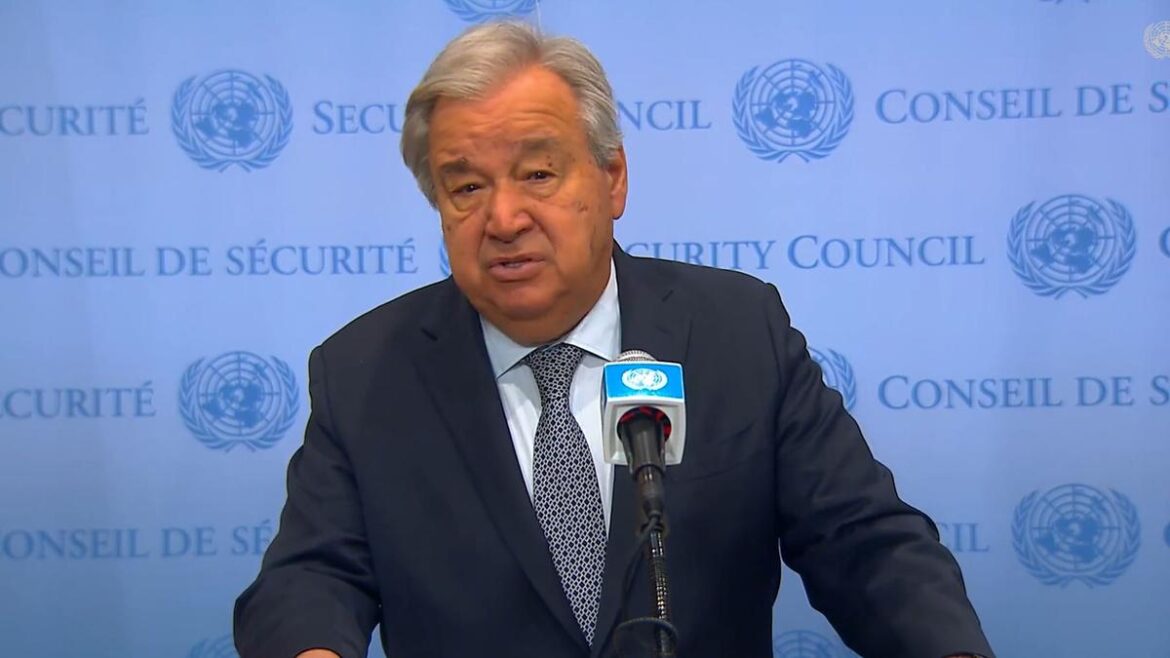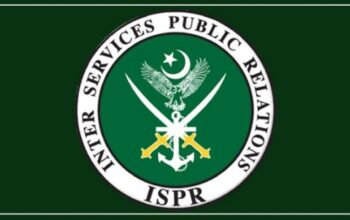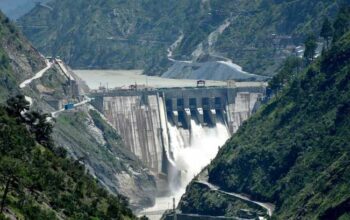By Staff Reporter
ISLAMABAD: UN Secretary-General António Guterres on Monday called for ‘maximum restraint’ between nuclear-armed rivals Pakistan and India, warning that escalating tensions had pushed the region to the brink of conflict following a deadly attack in Indian-administered Kashmir last month.
The April 22 assault in Pahalgam, which killed 26 people—mostly tourists—marked one of the deadliest attacks in the disputed region in over two decades. India swiftly accused Pakistan of having ‘cross-border linkages’ to the assailants, a claim Islamabad has vehemently denied while demanding an impartial international investigation.
Since then, both nations have reinforced military positions along their volatile border, with Indian Prime Minister Narendra Modi granting his armed forces “operational freedom” and Pakistan’s military leadership vowing a “swift and decisive” response to any aggression. Diplomatic efforts, however, have continued behind the scenes to prevent a full-blown crisis.
“The situation has reached a boiling point,” Guterres told reporters at the UN headquarters in New York, describing India-Pakistan tensions as the “highest in years.”
He condemned the Pahalgam attack and urged that those responsible be held accountable through “credible and lawful means.”
“It is also essential—especially at this critical hour—to avoid a military confrontation that could easily spin out of control,” Guterres said. “Now is the time for maximum restraint and stepping back from the brink.”
The UN chief’s appeal followed his second phone call in a week with Pakistani Prime Minister Shehbaz Sharif, who welcomed Guterres’ de-escalation efforts while reiterating Islamabad’s demand for an independent probe into the Kashmir attack.
“While reiterating his offer of an independent, transparent, neutral and credible investigation, the prime minister expressed his concern that India was yet to provide any evidence, nevertheless, it continued to resort to provocative rhetoric and warmongering,” Sharif’s office said in a statement.
Sharif also accused New Delhi of politicising international financial institutions to undermine Pakistan’s economy—a reference to recent Indian efforts to pressure the IMF over Islamabad’s $7 billion bailout programme.
Meanwhile, Iran’s Foreign Minister Hossein Amir-Abdollahian arrived in Islamabad early Monday as part of a regional diplomatic push, meeting with Sharif, Army Chief Gen. Asim Munir, and Deputy Prime Minister Ishaq Dar.
In talks with the Iranian envoy, Sharif condemned India’s suspension of the Indus Waters Treaty—a 1960 World Bank-mediated agreement on shared river resources—as an “unacceptable” escalation and a “red line” for Pakistan. New Delhi halted the treaty days after the Pahalgam attack, citing Islamabad’s alleged support for militants.
“Pakistan has acted with maturity and responsibility,” Sharif said, according to his office. “India, on the other hand, created a media frenzy to divert the world’s attention away from the Jammu and Kashmir dispute, which remains the root cause of instability in South Asia.”
Iran’s top diplomat, who is expected to travel to India later this week, reaffirmed Tehran’s commitment to regional stability and stronger ties with Pakistan.
The flurry of diplomacy came as Pakistan’s Permanent Representative to the U.N., Asim Iftikhar Ahmad, urged the Security Council to intervene, calling dialogue the “only way” to resolve the crisis.
A closed-door session was held on Monday at Islamabad’s request, with Ahmad stressing that India’s recent moves—including the Indus Treaty suspension—posed a “threat to peace and stability.” He reiterated Pakistan’s willingness to cooperate with an independent probe into the Kashmir attack.
Separately, the OIC Group in New York, which represents the OIC’s interests and voice at the UN, expressed its deep concern over the situation in South Asia, exacerbated by India’s ‘unfounded allegations’ against Pakistan, which it said were ‘inflaming tensions in an already volatile region’.
“The OIC Group reiterates its principled position against, and condemnation of terrorism in all its forms and manifestations, committed by whomsoever and wherever; and reaffirms its unequivocal rejection of all attempts to associate any country, race, religion, culture or nationality with terrorism,” it said in a statement.
“The Group commends the offer of good offices made by the UN Secretary General and calls upon the international community, including the United Nations Security Council and influential states, to take immediate and credible measures to de-escalate the situation.”
The tensions have drawn global concern, with Washington, Beijing, and European capitals urging restraint. Pakistan has privately assured allies it will not initiate military action, officials say, but has warned of a forceful response to any Indian provocation.
The two neighbors have fought three wars since 1947, two over Kashmir. The last major confrontation, in 2019, saw aerial dogfights and brinkmanship after a suicide bombing in Indian Kashmir killed 40 troops.
Copyright © 2021 Independent Pakistan | All rights reserved




